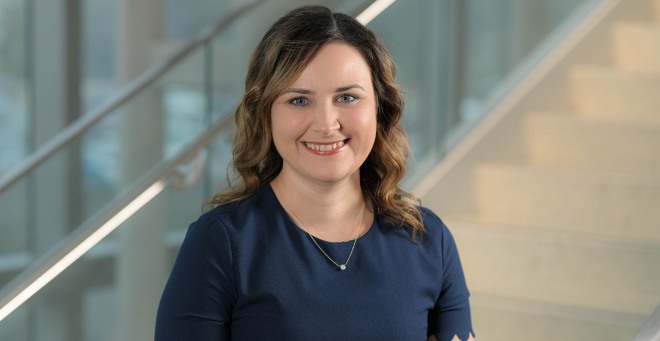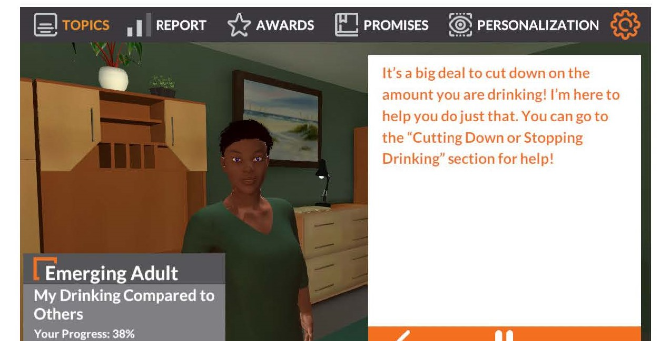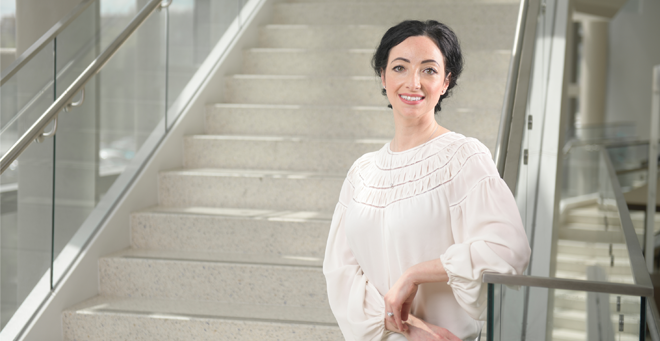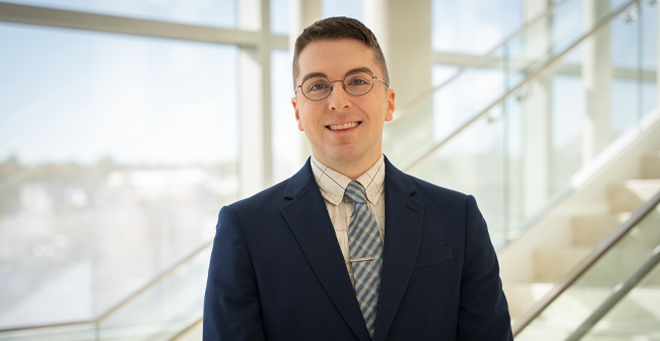
A pilot project evaluating the benefits of a mobile health intervention tool for young adults who visit the emergency department and who binge drink and experience thoughts of suicide will launch at UMass Chan Medical School in early 2024.
Lourah Kelly, PhD, assistant professor of psychiatry, was awarded a three-year, $750,000 project grant from the National Institute on Alcohol Abuse and Alcoholism to explore the functionality of a novel avatar-guided digital health platform for young adults.
“Many people have experienced suicidal thoughts while drinking or intoxicated and that can be a very dangerous time, because it is more likely to lead to suicide attempts,” Dr. Kelly said. The two co-occurring problems require skills for managing drinking, managing suicidal thoughts and managing them both together, according to Kelly.
“A digital health intervention can help deliver the content in a way that is accessible and interesting to young adults, and do it when and where it is helpful,” she added.
Kelly said adults ages 18 to 25 consistently report the highest rates of co-occurring alcohol use disorder and suicidal thoughts and attempts and of binge drinking and suicidal thoughts and attempts, of all adult age groups.
Additionally, young adults have very low participation in alcohol and other drug use treatment.
“Although many young adults are interested in treatment, there are many barriers to accessing care. There aren’t enough health care providers; many young adults want to try and do it on their own; or they want their existing support in their community to help them,” Kelly said. “A digital health intervention could bridge that gap and inform people about the options that are out there for outpatient care or other forms of care.”

The first part of the study is an open pilot trial, enrolling 10 young adults over six months starting in January. The pilot trial is a usability study for the enrolled participants to access and engage with the content in the mobile health intervention and to make sure that research protocols are feasible for young adults who are seen in emergency departments. Participants are asked to respond to two-minute health check surveys four times a day and a daily morning assessment for 28 days following their emergency department visit.
The second part of the study is a randomized controlled feasibility trial that will start in late 2024. This will include 60 participants, with 30 young adults receiving the digital health avatar-guided intervention and emergency department care as usual and the other 30 young adults getting a commercially available, free suicide prevention app and emergency department care as usual.
The digital platform is being developed in partnership with a programming team at the Rochester Institute of Technology in New York and was derived from a platform designed for adults with substance use disorders by Caroline Easton, PhD, professor of forensic psychiatry at Yale University School of Medicine.


